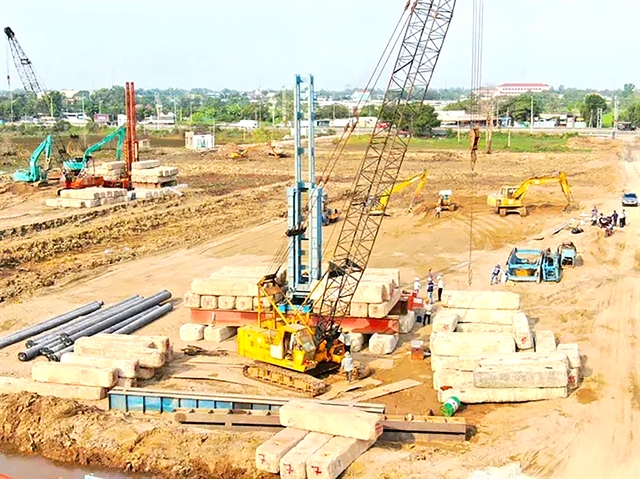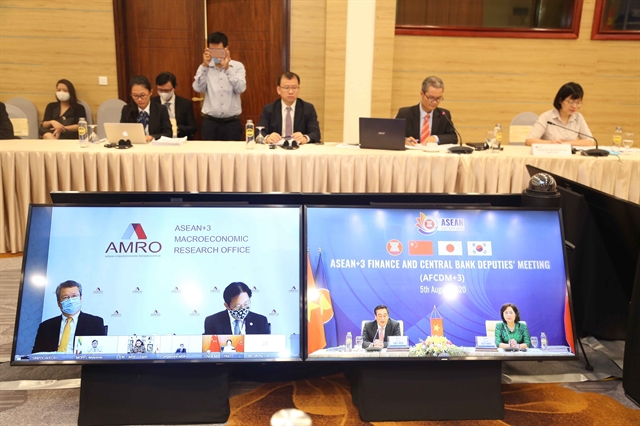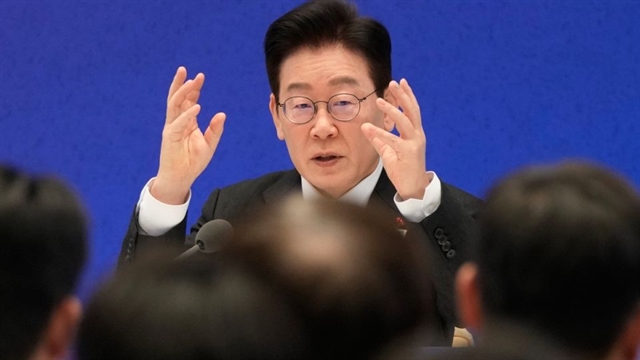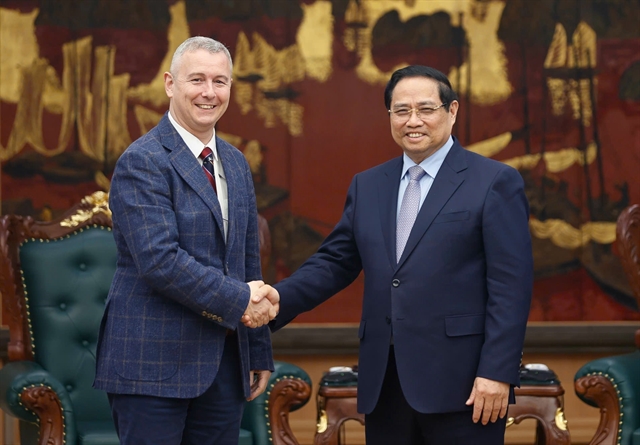 Economy
Economy

Senior finance officials of ASEAN+3 countries on Wednesday reviewed progress in the implementation of new initiatives under the strategic directions of the ASEAN+3 Financial Cooperation Process.

|
| Senior finance officials of ASEAN+3 countries on Wednesday reviewed the progress in the implementation of future initiatives under the strategic directions of the ASEAN+3 Financial Cooperation Process. — VNA/VNS Photo Phạm Hậu |
HÀ NỘI — Senior finance officials of ASEAN+3 countries on Wednesday reviewed progress in the implementation of new initiatives under the strategic directions of the ASEAN+3 Financial Cooperation Process.
Speaking at the virtual ASEAN+3 Finance and Central Bank Deputies Meeting (AFCDM+3) on Wednesday, Vietnamese Deputy Minister of Finance Trần Xuân Hà highlighted important progress made in financial co-operation among ASEAN and Japan, China and the Republic of Korea.
The meeting took place amid the complex developments of COVID-19 pandemic which has caused severe impacts on global and regional economies.
According to the International Monetary Fund (IMF), the global economy is expected to shrink by 4.9 per cent in 2020 while Asian economies will likely contract by 1.6 per cent.
“Despite that, the ASEAN+3 financial co-operation process has continued to achieve important steps over the past time. Our working groups keep working to carry out activities within the framework approved by finance ministers and central bank governors and have achieved significant results,” Hà said.
The conference highlighted the improvement of the operational efficiency of the ASEAN+ 3 Macroeconomic Research Office (AMRO), the signing of the revised Chiang Mai Initiative Multilateralisation (CMIM) and progress under the Asian Bond Market Initiative (ABMI).
The revisions recently made to strengthen the CMIM Agreement were considered necessary following changes in the international financial market and in line with the co-ordination mechanism between CMIM and IMF. These actions hope to make CMIM an effective tool to complement the regional and global financial safety net.
The deputies also highly appreciated the results of the ABMI working group in researching and improving the environment to attract investors, developing new investment tools, completing the legal framework and developing infrastructure for the bond market, as well as implementing technical assistance programmes to develop the domestic bond market of member economies.
The conference recognised efforts of the ASEAN+3 Macroeconomic Research Office (AMRO) as an international organisation which has implemented macro-economic monitoring activities and supported countries to strengthen their capacity to formulate policies amid limited human and budget constraints. Deputies also approved AMRO's budget and personnel plan for 2021.
To enhance regional economic and financial stability, deputies reviewed the progress of new initiatives under the 'Strategic Directions of ASEAN+3 Finance Cooperation'.
They include the promotion of local currency use for trade and investment settlement, as well as payment connectivity; comprehensive development of initiative on infrastructure financing; designing more supporting facilities to help members better deal with macro-critical structural issues; exploring co-operation in the fields of mitigation and adaptation of climate change; and enhancing policy coordination to harness benefits of technological advancement while minimising risks.
In the informal session, deputies exchanged views and discussion on 'Strategy, Action and Policy Perspectives against COVID-19 Pandemic' and updated their views on regional and country-specific macroeconomic outlooks, as well as policy measures response to the pandemic.
This meeting was considered an important milestone in the ASEAN+3 financial co-operation progress in 2020 under Việt Nam’s 2020 ASEAN chairmanship. The outcomes of the discussion will be reported to the ASEAN+3 Finance Ministers and Central Bank Governors in September 2020. — VNS




